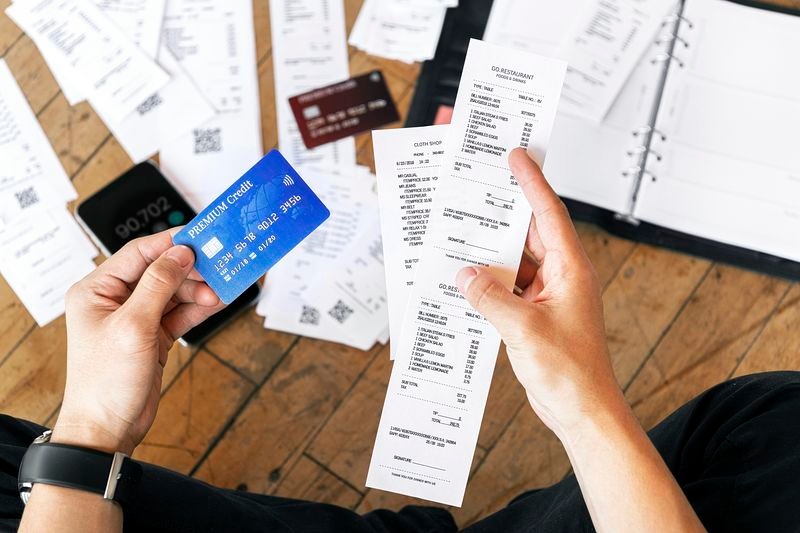Substance use disorder and debt often come hand-in-hand. Seeking positive reinforcement and emotional escape by spending, even when a substantial level of debt has been accumulated, can be an act of addiction itself. Managing your debt while going through addiction recovery can be a major challenge. Fortunately, many techniques you will practice in recovery can be applied to your financial situation as well.
Cost of Recovery Programs
If you are already trying to overcome debt, the cost of going through addiction recovery may seem unfathomable. Treatment programs and mental health services are often very expensive. Luckily, a majority of health insurance companies are beginning to cover these services or at least provide some level of coverage. Ensuring you find a program that your insurance will help cover can allow you to receive the recovery treatment you need without adding more debt to your situation.
Working with insurance companies to find what your policy covers can be stressful and intimidating, but there are many resources available to help this process run smoothly. At Dream Recovery, we accept a majority of insurance policies. To learn more about your coverage, reach out to the recovery center or your insurance provider for more information.
Creating a Financial Plan
To eliminate the debt you owe and set yourself up for financial success in the future, creating a financial plan is essential. Start with a budget plan, listing all your monthly bills and regular expenses. Doing this can help you to discover areas in which you are spending more than anticipated and correct this behavior. Set a spending goal for each category that is achievable with your current income rate. This will prompt your mind to pay attention to your spending habits and make more decisions that serve your long-term goals.
Next, list the current debts you owe. This list may include credit card bills, housing payments, student loans, or any other form of debt you may have acquired. Using some of the money you have saved through your budget plan, you can work toward paying off these debts. Understanding the amount of debt you owe and creating a plan to pay off the smallest amount first, working your way up to the larger debts, can make this process easier for you.
After putting aside a certain amount of money to pay off debts, focus on creating a savings account if you haven’t already. Even if you are only able to put aside a small amount of savings at first, remember that something is better than nothing. Having a savings fund can help you have a safety net for unexpected future expenses, which can prevent a small expense from turning into considerable debt. It can help you to grow your money over time without you needing to spend your entire paycheck each month.
There are a variety of resources available, including but not limited to financial counselors, credit institutions, and debt relief services, that can help you through this process if you are struggling. Reaching out to your credit companies to create a payment plan helps both parties to be informed of the situation. These companies will often work with you to pay off your debts and extend the payment period, reducing the toll on your credit score.
Debt and Addiction
Spending habits that lead to debt can be a form of addiction itself. When dealing with debt and substance use disorder, you may find they are more correlated than you first realized. If you are working through a 12-Step addiction recovery program, you will find that many aspects of addiction and many techniques used in recovery also apply to financial management as well. A large number of individuals have reported that their financial habits have improved throughout the 12-Step program for their substance use disorder.
Throughout the process of recovery, you are creating goals for yourself and plans to help you achieve those goals. Implementing financial goals into your recovery is highly recommended to help you avoid feeling overwhelmed about your debts in the outside world. Reach out to your recovery team if you need financial assistance or help creating a budget plan.
Living a sober life after completing treatment, you will no longer be contributing a section of your finances toward the substance you were using. This extra room within your monthly budget may be enough to help you pay off your debts and save for your future.
Self-Control
One of the biggest advantages of obtaining these financial skills is the level of self-control you will reach. Self-control is a large aspect of managing sobriety as well as finances. Improving your ability to control your impulses can help you avoid making bad decisions in the future and instead create healthy habits that serve your physical and financial well-being. This level of self-control can improve your overall ability to hold yourself to your standards and achieve your goals for the future.
Addiction recovery is filled with many obstacles to overcome. Dealing with debt and financial stress throughout this process can be overwhelming. Fortunately, many skills learned within the addiction recovery process can be applied to financial success as well. First, look into insurance options to lower the cost of recovery and ease your financial stress. Second, develop a budget plan, debt payment plan, and savings plan during recovery to help you stay on track financially after completing your recovery. Remember that some of your goals through recovery can be focused on other aspects of your life that you desire to improve. Setting financial goals that you can work toward alongside your addiction recovery goals can alleviate the stress of managing both obstacles at once. To learn more about finding financial resources and handling your debt in recovery, reach out to Dream Recovery today at (949) 732-1960.

